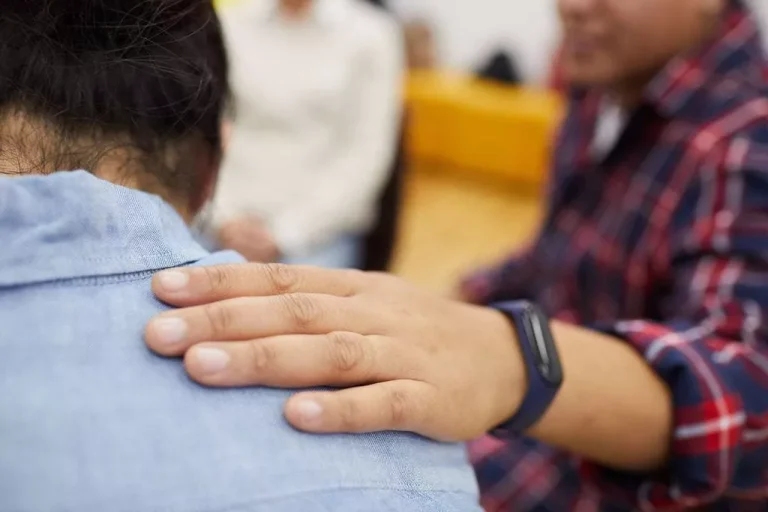What Does Alcohol Do to Your Body? Benefits & Risks

Moreover, a lack of quality sleep can also impact the body’s metabolic processes. This leads to a slower rate of calorie burning and a greater propensity for weight gain. Studies show that even moderate alcohol consumption shortens REM sleep. It’s a crucial stage for memory consolidation and overall well-being. As you can see, the alcohol calorie count can quickly add up, especially when consuming multiple drinks.
Gastritis: The Inflammation That Causes Alcohol Bloating
If it is hard to start, go on a gentle, weekly walk with a friend in recovery for accountability. Download a fitness app and do exercises inside the house if that is more comfortable. Try new things like cycling, volleyball, dancing, swimming, or hiking. Alcohol can also increase specific hormones, such as estrogen, which may raise the risk of hormone-related cancers, particularly breast cancer. Another way alcohol can contribute to cancer growth is by acting as a solvent, allowing carcinogenic substances to enter cells more easily, says Andrews.
- Avoiding carbonation, artificial sugars, mixed drinks that include lots of ingredients, and drinking through a straw may all reduce the bloating that can occur after drinking.
- Alcohol can make you more susceptible to mental health issues like depression and anxiety, reducing your motivation to go out and be active.
- It’s important to remember that it is completely normal for people to gain weight when they get sober.
- Biceps skin fold was the only anthropometric measurement that was increased in their participants after the beer drinking condition 52.
Alcohol Consumption Recommendations and Limits

Research has found that light to moderate alcohol consumption doesn’t cause weight gain. There’s a lack of evidence linking reduced alcohol consumption to weight loss. A study published in 2016 found that decreasing light-to-moderate alcohol consumption did not significantly affect weight loss. Still, the researchers noted that reducing alcohol intake led to less impulsivity, like overeating. Most people enjoy many benefits after they quit drinking, including healthier skin, better sleep, more energy, and clearer thinking.
Risks and Negative Effects of Alcohol
Alcohol has long held a prominent place in many societies and cultures. While moderate alcohol consumption may offer some small cardiovascular benefits, the risks of consumption may outweigh these potential benefits. Additionally, drinking excessively has been shown to increase the risk of accidents and injuries. Longer-term, it may impair liver function, increase gained weight after drinking alcohol the risk of certain cancers and adversely affect cognitive and mental health. It’s also common for excessive drinking to damage your gastrointestinal tract, leading to poor absorption of nutrients and malnutrition.
- If you quit alcohol and you hadn’t developed it, you reduce the risk of developing it.
- Conversely, one study found no association between alcohol intake and increases in WC in men, but a small positive association in women 41.
- Steatotic liver disease develops in about 90% of people who drink more than 1.5 to 2 ounces of alcohol per day.
- Steatotic liver disease used to go by the name fatty liver disease.
“And cortisol is responsible for a lot of our bodily functions.” That can make it easy to inadvertently consume more calories than you need. Despite containing a lot of energy, alcohol also doesn’t have the same satiating effect as solid food. “If you’re trying to lose weight, what you really want to happen is you want fat burning to be turned on as much as possible,” Wyatt says. Still, an estimated 42% of Americans are obese, and 60% of Americans say they drink alcohol.

Research shows that even low levels of alcohol consumption can be potentially harmful, as there is no safe level for cancer risk, adds Diaz. In addition to triggering telltale hangover symptoms like headache, nausea and fatigue, alcohol can also lead to dehydration, gastrointestinal discomfort, risky behavior and poor sleep, says Diaz. “In severe cases, excessive consumption can lead to life-threatening alcohol poisoning, marked by vomiting, seizures and slowed breathing,” she emphasizes. From clinking glasses for a toast to unwinding with friends after a long day, alcohol has played a central role in shaping traditions and celebrations for centuries. While it can foster connection and enhance social experiences, beneath the celebratory surface lie potential beneficial and harmful effects.
Is Alcohol Bloating Preventable?

The State of Victoria and the Department of Health shall not bear any liability for reliance by any user on the materials contained on this website. So yes, it’s possible to gain weight from alcohol, but it’s not inevitable. Quitting alcohol can lead to multiple side effects like insomnia, dehydration, which can lead to fatigue.
However, others develop unhealthy eating patterns that lead to unhealthy weight gain. Bloating can happen after drinking alcoholic beverages for a variety of reasons. People who drink regularly may experience effects such as excess gas or even weight gain. If bloating after drinking becomes a problem, there may be ways to either get rid of it or avoid it in the first place. Sharing an alcoholic beverage with someone is a common way to celebrate, wind down, or enjoy a night out.

Gut health
More human research is needed to understand how alcohol affects hunger. One animal study published in 2017 found that alcohol activates cells in your brain that signal intense hunger. Alcohol has a lot of calories but offers no nutrients and may affect hormones that control appetite, hunger, and stress. Those extra numbers on the scale are likely a result of bloat, water retention, and a digestive system that’s not firing on all cylinders. Bloating can result from the inflammation alcohol causes in the stomach and may last a few days, or longer depending on your body and the amount of alcohol consumed.





